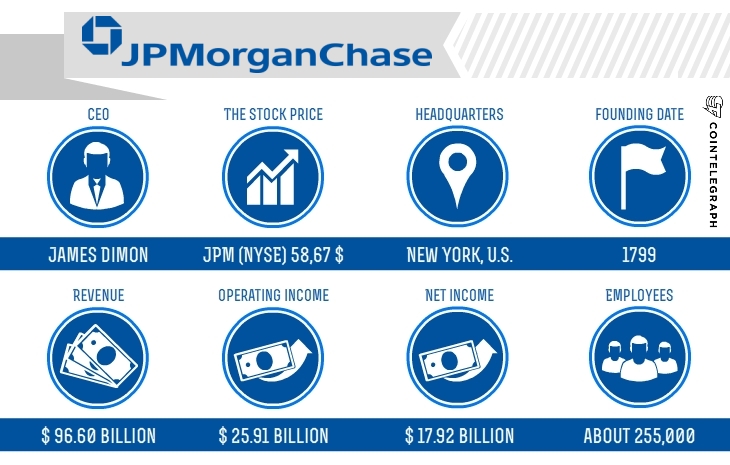If comments from JPMorgan's CEO are any indication, the financial giant considers Bitcoin a competitor — and it plans to compete.
Bitcoin developers “are going to try and eat our lunch,” JPMorgan Chase Chairman and Chief Exectutive James Dimon said, at the Institute of International Finance annual meeting, as reported by Institutional Investor. “And that’s fine. That’s called competition, and we’ll be competing,” he added.
The Institute of International Finance is a global financial alliance; the world's financial leaders congregate annually for the membership conference, where the discussion cropped up.
Debate over regulations
Debate raged over the state of regulations, and Bitcoin's ability to harmonize. Financial leaders argued that the only way Bitcoin can compete is if it conforms to regulations.
Dimon defended leading financial institutions and argued for a role for government, stating:
“When people form nations, one of the first things they do is form a currency. Are regulators and governments really going to foster Bitcoin over a long period of time? I think the answer is no.”
Music, retail, and media have transformed over the past decade. “Why has that disruption not happened in finance?” Co-CEO of Deutsche Bank Anshu Jain asked rhetorically. “There's a very straightforward reason: regulation.”

On the other hand, CEO of SecondMarket Barry Silbert said:
“Two years ago I would have said the biggest obstacle to growth of Bitcoin was regulation, now I think it's the biggest opportunity.”
The relationship between JPMorgan and Bitcoin
For those following JPMorgan Chase's dealings in Bitcoin, these comments may come as no surprise. JP Morgan has made some mildly antagonistic moves towards Bitcoin.
Nearly a year ago the company filed a patent for a digital currency system that shares some similarities with Bitcoin — like anonymity and easy global transfer –– but brings it under a centralized umbrella.
Then JPMorgan Head of International Rates Strategy, John Normand, released an unfavorable report: “At the risk of sounding like a Luddite unable to recognize the transformative effects of evolving technologies –– Bitcoin looks like an innovation worth limiting exposure to.” He called cryptocurrency “vastly inferior” to fiat.
The relationship between traditional and “fringe” financial interests seems to be taking on a love-hate character. Back in August, the largest European Bank in the euro-zone, Santander, commissioned a study on the impact of cryptocurrencies on the banking industry, while back in July, Ireland’s Central Bank official acknowledged the disruptive potential of the nascent technology.
